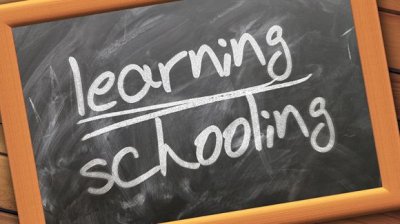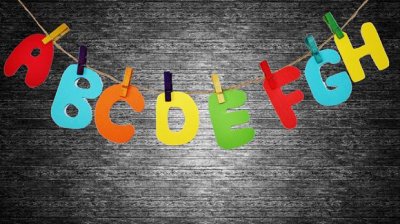小学五年级英语上册语法知识点
小学五年级英语上册语法知识点。五年级英语学习的知识全部都是基础知识,如果你想要轻松学习小学英语,就要认真记忆这些基础知识。在这里呢,我们大思英语小编为同学们带来了,五年级英语上册语法知识点总结。

小学五年级英语上册语法知识点
Ⅰ、句子的主谓宾
[1]There be句型,接真正主语,介词短语放后面,这儿有什么东西在什么地方
①这儿有十支铅笔在蓝色的盒子里。There are ten pencils in the blue box.
②这儿有足够的铅笔。There are enough pencils.
③这儿有很多的书在桌子上。There are many books on the desk.
④这儿有一台电脑在我的房间里。There is a computer in my room.
⑤这儿有足够的T裇衫给孩子们。There are enough the T-shirts for child.
⑥树上有许多小鸟。There are many birds in the tree.
⑦树上有许多香蕉。There are many bananas on the tree.(在树上长的果实用on)
[2]Let’s让我们句型,接动词原形
①让我们列一个购物清单。Let’s make a shopping list.
②让我们带上我的跳绳。Let’s take my skipping rope.
[3]正常语序
①我们在8点钟开始上课。(介词短语放后面)My school starts at eight o’clock.
②你应该吃蔬菜。(should后用动词原形)You should eat veagetables.
③她感觉高兴。(一般现在时第三人称单数+s)She feels happy.(She is feeling happy.)
④我们参观了许多地方。(过去时+ed)We visited lots of places.
⑤这是她的包。(形容词性的物主代词)This is her bag.
[4]正常语序的否定形式。直接加n’t,一般动词加助动词don’t,doesn’t,didn’t.(注意:原来的谓语动词要变原形)
①昨天我没有骑自行车。I didn’t ride a bike yesterday.
②这个老人没有坐下。 This old man don‘t sit down.
③我们不应该在教室里下棋。(介词短语放后面)We shouldn’t play chess in the class.
④我根本不能做2。(介词短语放后)I can’t do 2 at all.
Ⅱ、一般疑问句(用Yes/No回答)
直接提前:Can/Should/Will,Have/Has/Had(后面要有got),Am/Is/Are/Was/Were;
其他一般动词句首加:Do/Does/Did,注意:后面的谓语动词改原形。人称的变化。
①他们照相了吗?Did they take photos?
②你有一个中国风筝吗?Have you got a Chinese kite?
③你感觉无聊吗?Are you feeling bored?
Ⅲ、名词单复数(an/a后或不可数名词不管,只有整类或可数名词两个或两个以上+s)。
①My sister has got a beautiful ________(书包).
②We had rice, meat and ________ (面条)for lunch.
③Do you want some ________ (米饭)?
④Last week, I ran 100 ________ (米).
⑤Did you eat ________ (蛋糕)yesterday?
⑥Do you like ________ (梨子)?
⑦Her ________ (裙子) is very beautiful.
Ⅳ、特殊疑问句(特殊疑问词Wh-How开头+一般问句构成)
萨姆去了哪里?Where did Sam go?
②这些是谁的书包?Whose bags are these?
③昨天玲玲去了哪里?Where did Lingling go yesterday?
④你什么时间起床?What time do you get up?
⑤你感觉怎么样?How do you feel?
⑥你们什么时候回来?When did you come back?
⑦这是谁的连衣裙?Whose dress is this?
⑧你什么时间上学?What time do you go to school?
⑨大明做了什么?What does Daming do?
⑩你想要多少肉?How much meat do you want?
Ⅴ、介词短语
①到时间起床了。up It’s time to get up.
②我参观了许多地方。ofI visited lots of places.
③我乘公共汽车回家。byI go home by bus.
④大明照了一张他爸爸的相。ofDaming took a photo of his father.
⑤他们去了那里在十点钟at在早晨in在周末at(在星期六on)They go there at ten o’clock.
⑥听收音机。toListen to the radio.
⑦让我们买一公斤肉。ofLet’s buy one kilo of meat.
⑧玲玲,你想成为在我们的足球队里吗?in Lingling, do you want to be in our football team?
⑨她擅长跳舞。atShe is good at dancing.
⑩John居住在上海。inJohn lived in Shanghai.
Ⅵ、主语主格(用在最前面),宾格(动词后面),形容词性的物主代词(名词前面),名词性的物主代词(单独用常在最后,相当于一个名词+s)
I―――—me――― my――――mine
You―――you――― your―――yours
He――― him―――his―――—his
She―――her――― her――― hers
①他拿了我的T裇衫 He took my T-shirt.
②它不是他的,它是我的。It’s not his.but it is mine.
③请递给我米饭。Pass me the rice,please.
Ⅶ读一读,圈出画线部分发音不同的一项。(试着拼读,找出画线部分发音)
①A. teacherB. meatC. sweater
②A. airB. ballC. all
③A. sunB. noseC. faceD. rice
④A. shoeB. fishC. shipD. television
判断读音是否相同,相同写T反之写F(试着拼读,找出画线部分发音)
⑤driverdress()
⑥nothingthis()
⑦handhour ()
⑧schoolshopping ()
小学五年级英语上册语法知识点。马上将要成为6年纪的同学们,需要更多的了解一些小升初的知识了。在2018年小升初英语考试到来之际,大思英语小编为大家带来的是最新小升初英语语法考试考点,希望对大家学习小学英语有帮助!

一、可数名词与不可数名词分家
1、可数名词与不可数名词的区别
普通名词所表示的人或事物是可以按个数计算的,这类名词叫可数名词。可数名词分为个体名词(表示某类人或事物中的个体,如worker,farmer,desk,factory等)和集体名词(表示作为一个整体来看的一群人或一些事物,如people,family等。)如果普通名词所表示的事物是不能按个数来计算的,这类名词就叫不可数名词。不可数名词分为物质名词(表示无法分为个体的物质,如meat,rice,water,milk,orange等)和抽象名词(表示动作、状态、情况、品质等抽象概念,如work,homework,time,health,friendship等)。
2、可数名词的家务事
可数名词有单数和复数两种形式。指一个或一件事物时,用单数形式;指两个或多个人或事物时用复数形式。名词单数形式变成复数形式的规则如下:
(1)一般的名词词尾直接加-s。如:
book-books,room-rooms
house-houses,day-days
(2)以s,ss,ch,sh,x结尾的名词,在结尾加-es。如:
bus-buses,glass-glasses
watch-watches,dish-dishes,box-boxes
(3)以辅音字母+y结尾的名词,要先将y变为i再加-es。如:
city-cities,body-bodies
factory-factories等
(4)以f或fe结尾的名词,要将f或fe改为v再加-es。如:
half-halves,leaf-leaves
knife-knives,wife-wives
(5)特例[特例常常考,要记住]:
child-children
man-men woman-women policeman-policemen
tomato-tomatoes potato-potatoes
foot-feet tooth-teeth
sheep,Chinese,Japanese单、复数同形
people单数形式表示复数意义,要求谓语动词用复数;people的复数形式peoples通常指多个民族。
3、不可数名词的家务事
(1)不可数名词没有复数,当它作句子的主语时,谓语动词要用单数形式。如:
The food is very fresh.食品很新鲜。
(2)有的不可数名词也可以作可数名词,有复数形式,但它们的意义发生变化。如:
water(水)-waters(水域)
orange(橘汁)-oranges(橘子)
(3)很多的不可数名词表示泛指时为不可数,表示种类时就可数,但意义大多不发生变化,如:
fruit-fruits,food-foods
fish-fishes,hair-hairs
4、名词可数不可数六注意
(1)可数名词是可以用来计数的名词。可数名词有单数和复数形式。如:desk-desks,apple-apples等。不可数名词是不可以直接用来计数的名词。不可数名词没有复数形式,只有单数形式。如:some bread,a little milk等。
(2)单数可数名词表示泛指时,前面要用不定冠词a(an),表示特指时,前面要用定冠词the;而不可数名词前不能用a(an)修饰,表示特指时,前面一定要用定冠词the。如:
He is a factory worker.他是一名工人。
No one can see air.没有人能看见空气。
(3)可数名词和不可数名词前都可以用some,any,a lot of,lots of等来修饰,表示一些,许多。如:
There are some oranges on the desk.桌子上有一些橘子。
There is a lot of water in the bottle.瓶里有许多水。
(4)可数名词前课用具体的数词来表示具体的数量。如:
two apples,four books等。不可数名词前通常用单位词+of来表示数量。如:
a piece of paper,three pieces of paper等。
(5)可数名词作主语时。谓语动词的单复数与主语的单复数保持一致。如:
This picture is very beautiful.这幅画很美。
不可数名词作主语时,谓语动词要用单数形式,但是不可数名词前有复数单位词是,谓语动词要用复数形式。如:
There are two cups of tea on the table.桌上有两杯茶。
(6)对可数名词前的修饰语提问时用how many,对不可数名词前的修饰语提问时用how much。如:
How many apples are there in the box?盒子里有多少个苹果?
How much tea is there in the cup?杯子里有多少茶水?
注意:对不可数名词前的单位词的修饰语提问时,疑问词用how many。如:
How many pieces of bread are there on the plate?盘子里有多少片面包?
二、形形色色的名词所有格
在英语中,特别是表示有生命的名词,可以加's表示所属关系,名词的这种形式我们称之为名词的所有格。
1、名词词尾加's的所有格
(1)一般情况在名词后加's。如:
That girl's coat is in the room.那个女孩的衣服在房间里。
(2)在以s结尾的名词(包括以s结尾的复数名词)后面,只加'。如果复数名词不是以s结尾的,末尾也要加's。如:
Today is Seotenber 10th,Teachers' Day.今天是九月十日,教师节。
Children's Day is coming,I should buy something new for my son.儿童节马上就要到了,我应给为我儿子买一些新的东西。
(3)表示词组内的并列名词各自的所有关系时,须在各个名词后加's;如果一个东西为两个人或者两个以上的人共同拥有,只在最后一个名词后面加's。如:
They are john's and kate's rooms.How beautiful they are!这是约翰和凯特的房间。它们(指房间)太漂亮了!
He is Lily and Lucy's father.他是莉莉和露西的爸爸。
(4)表示某人的家、店铺等的所有格,一般可以省略它后面所修饰的名词。如:
My father and I will have dinner at the Johnson's(home).我爸爸和我将要五约翰逊的家吃晚饭。
We will have our hair cut at the baeber's(shop) tomorrow afternoon.明天下午我们要去理发店理发。
(5)有些指时间、距离、国家、城镇等的名词,也可以加's构成所有格。如:
There is something inportant in today's newspaper.今天的报纸上有一些重要的东西。
It's about ten minutes' walk from school to our home every day.每天从学校到我们家步行大约需要十分钟。
(6)英语名词所有格修饰的词,如果前面已经提到过,后面则可以省略,以防止重复。如:
This is not Dick's dictionary,but is Tom's.这不是迪克的字典,但是是汤姆的。
2、有of短语构成的所有格
(1)表示无生命的名词一般与of构成短语,表示所有关系。如:
There is a river on the other side of the road.在公路的另一边有一条河。
(2)有时我们用名词+of+名词所有格构成双重所有格的形式。如:
This is a photo of Mr Brown's.这是一张布朗先生的照片。
三、不用定冠词the的八项纪律
1、定冠词不与表示一类人活事物的复数名词连用。如:
(1)I like reading the books.(×) I like reading books.(√)
(2)She likes the cats.(×) She likes cats.(√)
2、定冠词不能用在某些习惯用语中的名词前面。如:
(1)I have lunch at the noon.(×) I have lunch at noon.(√)
(2)We go to school by the bus.(×) We go to school by bus.(√)
3、不定冠词不能用在某些专用名词和不可数名词前面。如:
(1)I like the China.(×) I like China.(√)
(2)Would you like a cup of the water?(×) Would you like a cup of water?(√)
4、定冠词不能用在节日、日期、月份、季节前面。如:
(1)Today is the Teacher' Day.(×) Today is Teacher' Day.(√)
(2)He was born in the May in 1987.(×) He was born in May in 1987.(√)
5.定冠词不能用在表示称呼语或某些头衔的名词前面(尤其作表语、宾补时)。如:
(1)Good morning,the sir!(×) Good morning,sir!(√)
(2)I need some help.the Mummy.(×) I need some help,Mummy.(√)
6、定冠词不能与名词前已有作定语的this,that my,your,some,any等代词连用。如:
(1)This the pen is mine.(×) This pen is mine.(√)
(2)I have the some money.(×) I have some money.(√)
7、定冠词不能用在表示科目名词的前面。如:
(1)We will learn the Chiese,the history and the Maths this afternoon.(×) We will learn Chinese,history and Maths this afternoon.(√)
(2)The English is the most interesting of all the subjects.(×) English is the most interesting of all the subjects.(√)
8、定冠词不能用在三餐和球类运动名词的前面。如:
(1)She goes to school after the breakfast every morning.(×) She goes to school after breakfast every morning.(√)
(2)We often play the football after school.(×) We often play football after school.(√)
四、介词for的用法小结
1、表示当作、作为。如:
I like some bread and milk for breakfast.我喜欢把面包和牛奶作为早餐。
What will we have for supper?我们晚餐吃什么?
2、表示理由或原因,意为因为、由于。如:
Thank you for helping me with my English.谢谢你帮我学习英语。
Thank you for your last letter.谢谢你上次的来信。
Thank you for your teaching us so well.感谢你如此尽心地教我们。
3、表示动作的对象或接受者,意为给……、对……(而言)。如:
Let me pick it up for you.让我为你捡起来。
Watching TV too much is bad for your health.看电视太多有害于你的健康。
4、表示时间、距离,意为计、达。如:
I usually do the running for an hour in the morning.我早晨通常跑步一小时。
We will stay there for two days.我们将在那里逗留两天。
5、表示去向、距离,意为向、往、取、买等。如:
Let's go for a walk.我们出去散步吧。
I came here for my schoolbag.我来这儿取书包。
I paid twenty yuan for the dictionary.我花了20元买这本词典。
6、表示所属关系或用途,意为为、适于……的。
小学五年级英语上册语法知识点,就是上面文章中大思英语小编为同学们带来的整理了。只要同学们好好记忆我们小编的整理分享知识点,就可以在英语学习中获得更多基础知识。




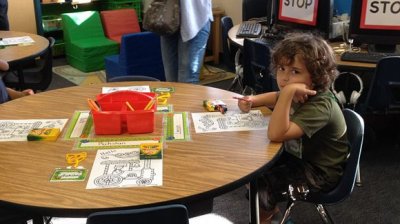
 小学二年级英语知识点
小学二年级英语知识点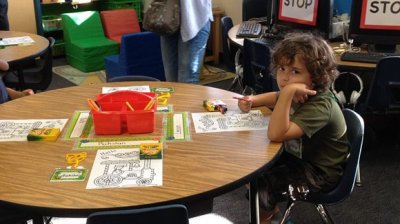 儿童英语三年级下册教
儿童英语三年级下册教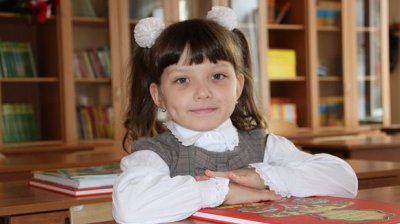 小学英语词组大全别再
小学英语词组大全别再 每日英语学习计划怎么
每日英语学习计划怎么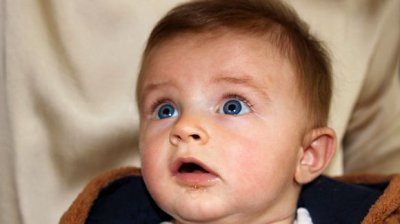 实用的经典英语课堂游
实用的经典英语课堂游 人教版小学五年级英语
人教版小学五年级英语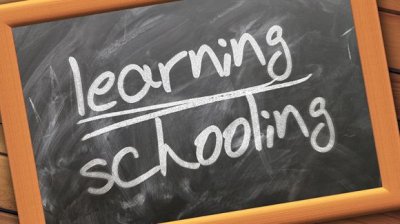 小学四年级英语总结重
小学四年级英语总结重 抗遗忘英语单词速记方
抗遗忘英语单词速记方 小学三年级上册英语讲
小学三年级上册英语讲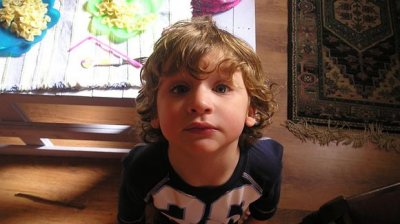 小学二年级英语书单词
小学二年级英语书单词 小学二年级下英语练习
小学二年级下英语练习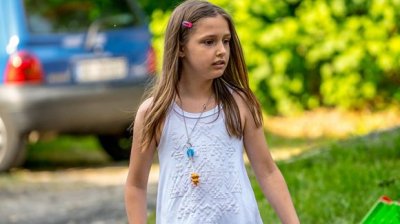 小学二年级下册英语试
小学二年级下册英语试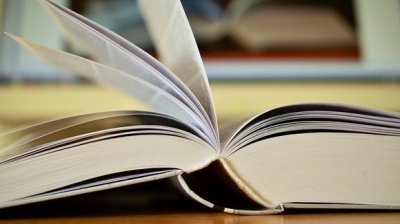 英语读书报告书写格式
英语读书报告书写格式 儿童英语顺口溜在快乐
儿童英语顺口溜在快乐 六年级下册英语学习提
六年级下册英语学习提 小学暑假英语日记带翻
小学暑假英语日记带翻
